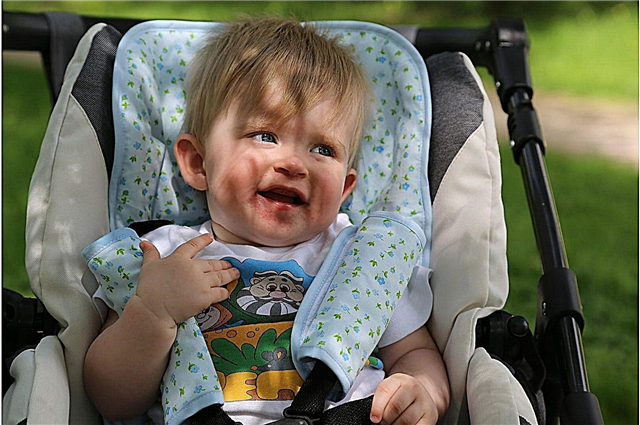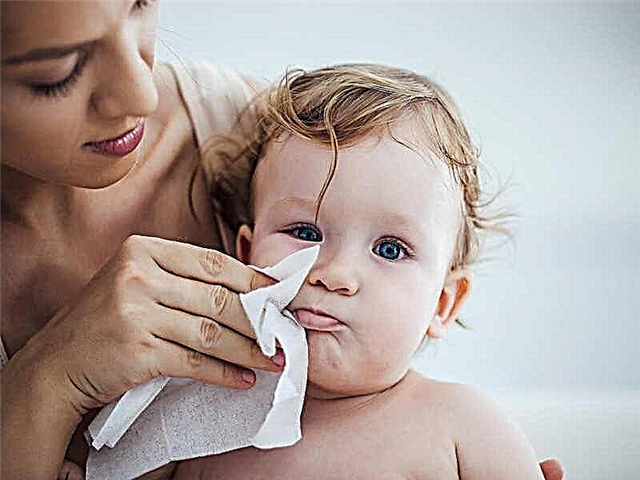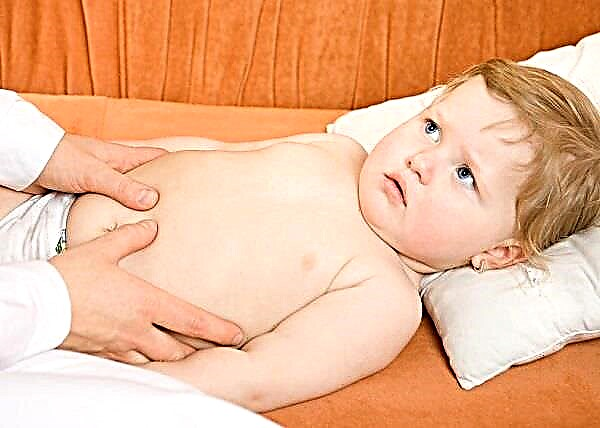A symptom such as painful urination in a child is quite common. This condition is caused by inflammation of the bladder - cystitis. According to statistics, the disease is detected in 25-35% of children with a frequency of at least 1 time in childhood. With cystitis, there is pain when urinating in a child, so parents need to know what actions should be taken to eliminate severe symptoms of inflammation.

The feeling of pain when urinating can be a symptom of various diseases of the child's genitourinary system.
About painful urination in a child
This condition in children is very often due to cystitis. The disease is an inflammation of the mucous and peri-mucous membranes of the bladder. In some cases, the pathology also affects the urinary tract.
Cystitis can occur in both acute and chronic forms. The latter develops if the acute stage was not promptly eliminated by proper treatment.
It is quite difficult not to notice the signs of the disease - painful sensations will certainly make themselves felt, and the child will react accordingly. It can be difficult to identify pathology in infants, since they cannot report the problem (constant crying is a too vague signal that can be interpreted in different ways: teething, hunger, whims, etc.).
Common Causes
Very often intestinal bacteria become the "catalyst" of the inflammatory process in the bladder.
Interesting. According to statistics, pathology is more common in girls than in boys, about 5-6 times. This is explained by the peculiarities of the physiological structure of the urethra: in girls it is shorter, so bacteria penetrate inside faster, reaching the bladder.
The main reason that can provoke cystitis is the inflammatory process. It can begin as a result of pathogenic bacteria entering the urethra from the outside (especially if personal hygiene is not followed). Infection can also occur against the background of urethritis, vulvitis, pyelonephritis.
Other common factors are:
- hypothermia;
- the presence of diaper rash;
- allergy;
- helminthic invasions.

Hypothermia often leads to inflammation of the bladder
The inflammatory process can be provoked by pathogenic microorganisms:
- Colibacillus;
- Staphylococci;
- Proteus;
- Streptococci;
- Chlamydia.
On a note. Bacteria most often enter the bladder ascending, that is, through the urethra. Infection from other organs (kidneys) or blood (descending route) is very rare.
Factors that favor the development of infection include:
- Hypothermia;
- Exacerbation of chronic diseases of the urinary system;
- Failure to comply with hygiene rules;
- Weakened protective functions of the body.
In addition to cystitis, there are other conditions in which it becomes painful for a newborn or an older child to write:
- Urolithiasis disease. Additional symptoms are:
- Red urine;
- Difficulty urinating;
- Swelling of the side of the abdomen.
- Hypothermia in the absence of cystitis.
- Ingestion of detergents into the urethra that irritate the mucous surface.
- Urinary tract infections leading to other types of inflammation.
- Vesico-pelvic reflux.
- The presence of a foreign body in the urethra.
Hypothermia
This is one of the most common causes of painful urination. It is in such cases that cystitis develops. The disease is especially common in children aged one year and older. Obviously, hypothermia can occur with insufficient insulation (especially when it comes to a newborn) when walking in cold weather or swimming in cool water. Very often this happens because the child sits on cold surfaces for a long time (for example, on concrete) or is in a draft.
Violation of hygiene
Late change of diapers, lack of regular hygiene procedures (washing), sitting on dirty surfaces without underwear - all these factors favor the entry of pathogenic microorganisms into the urinary system and the occurrence of pain during urination. Most often this happens to girls: violation of hygiene standards leads to the development of vulvitis (inflammation of the external genital organs) in them.

Personal hygiene is very important
Low immunity
The body's protective functions can be weakened as a result of exposure to factors such as:
- Stress;
- Frequent colds;
- Infectious diseases;
- Hypothermia;
- Overwork.
Important! With reduced immunity, the likelihood of infection and spread of pathogens in the organs of the urinary system increases significantly.
Exacerbation of chronic diseases of the genitourinary system
Among such pathologies, renal stone disease occupies a special place. The disease provokes the formation of kidney stones due to malnutrition, metabolic disorders, low physical activity, exacerbation of pyelonephritis. The latter is also a pathology of the urinary system and often becomes the cause of pain when urinating.
Diagnostics
Symptoms of cystitis and other pathologies that cause painful urination manifest themselves in different ways depending on the gender of the child. The fact is that the structure of the genitourinary system in boys and girls is significantly different.
Symptoms in girls
Since the main reason why a child may be painful to write is cystitis, it is better to consider the symptoms using this pathology as an example. The signs of cystitis in a girl are as follows:
- Itching and burning when urinating.
- Pain in the lower abdomen.
- False urge to go to the toilet.
- Frequent urging with a small amount of urine.
- Cloudy urine, possibly with pus or blood.
- As a consequence of the listed symptoms - restless behavior, irritability, sleep disturbance.
- Bad urine smell.
As for other diseases, the symptoms of those in girls may be as follows:
- Redness and swelling of the labia, burning, itching when urinating, the presence of discharge (vulvitis, thrush);
- Full or partial gluing of the labia, as a result of which the outflow of urine is disturbed (the girl pushes when trying to go to the toilet, can change the direction of the stream).
Symptoms in boys
In boys, the signs of cystitis are similar:
- Frequent painful urination.
- Leaking a small amount of urine.
- Sharp pain when urinating.
- False urge.
Symptoms of pathologies that can cause pain in boys when urinating are as follows:
- With phimosis (this condition assumes that the head of the penis does not separate from the foreskin), there is redness in the area of the head of the penis, slight swelling, accumulation of urine and smegma, pain at the beginning of urination.
- Itching and burning, the presence of discharge, as well as impurities of blood in the urine - these are the standard signs of urethritis (occurs due to injury, infection in the urinary system).
- If, after bathing procedures, the detergent remains on the foreskin of the penis, burning and pain may appear at the time of urination immediately after taking a bath.
- Swelling of the head and foreskin, as well as the occurrence of a burning sensation, pain, an increase in lymph nodes in the groin area are symptoms of postitis or balanitis. These pathologies develop under the influence of fungus, infections, and are also a consequence of neglected phimosis and non-compliance with hygiene standards.

Kidney stone disease
Treatment and prevention
It is clear that the treatment of painful urination depends on the cause of the condition.
Important! If the baby complains that it is difficult and painful for him to go to the toilet, you should immediately contact a specialist: pediatrician, pediatric urologist, gynecologist (if signs of pathology are observed in the girl). Only a doctor will be able to make an accurate diagnosis and prescribe adequate therapy. In no case should you self-medicate. It is allowed to remove the symptom on its own only if the problem was caused by a violation of hygiene rules or soap on the mucous surface of the external genital organs.
Events
The reason is determined by the doctor, thanks to a competent diagnosis. For this, appropriate studies are assigned:
- General blood analysis;
- General urine analysis;
- Biochemical analysis of urine;
- Ultrasound of the urinary system;
- Ultrasound of the kidneys;
- Sampling of material from mucous surfaces for bacterial inoculation (carried out in order to identify the causative agent of the inflammatory process).
If, according to the results of the research, a serious pathology is established, then babies aged 1-2 years are sent for inpatient treatment.
Important! Children should observe bed and drinking regimes (drink a lot, especially cranberry and lingonberry fruit drinks). It is recommended to use trays with chamomile or potassium permanganate, adherence to a dairy-vegetable diet. It is forbidden to eat fried, salted, smoked, spicy foods. It is also necessary to strictly observe the rules of personal hygiene, wear only cotton underwear (synthetics are unacceptable).
Disease prevention is no less important. It is known that it is easier to prevent pathology than to cure (besides, this kind of disease, in the absence of proper and timely treatment, is fraught with complications and a transition to a chronic form). Preventive measures include:
- Proper nutrition;
- Thorough hygiene;
- Providing warmth (especially for the lower torso and legs);
- Wearing clothes made from natural fabric;
- Timely referral to a doctor if painful symptoms occur.

Kidney ultrasound
Drugs
If it hurts a child to write (a girl or a boy), the doctor may prescribe a course of taking such medications:
- Antibiotics;
- Phytopreparations;
- Immunomodulators;
- Diuretics
- Anti-inflammatory.
If it hurts for a baby or an older child to go to the toilet, you always need to look for the reason and undergo a comprehensive examination in a timely manner.



